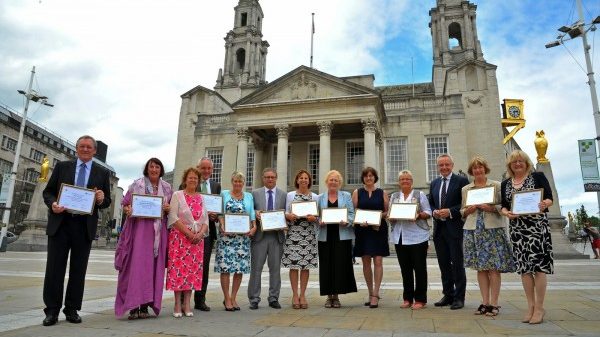Residents across Yorkshire will benefit from lower fares, improved reliability and better bus services as the Government delivers a further £11.2 million to support local buses into 2025.
Roads Minister Richard Holden has confirmed that seven local authorities in Yorkshire will receive the second £11.2 million allocation of the Bus Service Improvement Plan+ (BSIP+) for 2024-25.
The funding follows the first £103.2 million BSIP+ and BSIP investments for Yorkshire for 2022 through to early 2025, taking the total government support to help improve bus services in the region to more than £114 million over three years.
From introducing new services, or enhancing existing ones in the weekends or evenings, or to making tickets cheaper through reduced fares for elderly or young people, local authorities can use the new BSIP+ allocations in several ways to improve bus services for all residents in Yorkshire.
Local authorities can also use the investment to protect bus services with low passenger numbers, so that residents in Yorkshire who rely on them for essential services can continue to access their local bus.
Roads Minister Richard Holden said:
“Buses are the most popular form of public transport, and so many residents in Yorkshire rely on their local service to get to work, attend medical appointments, and see loved ones.
“We are delivering for local communities across six local authorities by providing a further £11.2 million to improve and protect essential local services, as we continue to boost transport connections in Yorkshire to help grow the economy.”
The new BSIP+ funding for Yorkshire is part of a wider £160 million investment to improve bus services across England from 2022 through to 2025.
It comes on top of a further £140 million announced in May from the extension of the Bus Service Operators Grant (BSOG), taking the total to continue supporting and protecting bus services across England to £300 million into 2025.
To help people with cost of living pressures and save on everyday travel costs, the government has also invested £200 million to extend the bus fare cap, with single bus tickets capped at £2 outside London until the end of October 2023 and then at £2.50 until 30 November 2024.
The £2 fare cap has cut travel costs particularly in rural areas, where buses are crucial for so many people to get around, with the average fare dropping by 10.8% in rural and non-metropolitan parts of England.
Silviya Barrett, from Campaign for Better Transport, said:
“We’re pleased the £2 bus fare cap we campaigned for has been a success, reducing fares and boosting passenger numbers.
“The additional funds for local authorities announced are also welcome and we hope that this is just the start of ongoing investment in bus networks across the country.”
These initiatives take total government support to protect and improve bus services while keeping fares low in England to £3.5 billion since 2020.
While it is the responsibility of bus operators and local transport authorities to ensure an adequate provision of bus routes, the Government continues to work closely with the sector to support local areas in dealing with changing travel patterns while managing pressures on the taxpayer.
Janette Bell, Managing Director of First Bus said:
“We welcome the certainty provided by the confirmation of the next tranche of local authority funding allocations.
“We look forward to working together with our local authority partners to deliver the best services possible for our customers. At First Bus we are driven by a passion to get more people using the bus and we welcome any funding that makes taking the bus an easier travel choice.”
In addition to the £3.5 billion to support buses since 2020, the government has provided £5.7 billion to 8 mayoral combined authorities in England to support integrated, cross-modal transport networks over the next 5 years through the City Region Sustainable Transport Settlementv (CRSTS), including supporting bus infrastructure.
The Department has also recently confirmed £129 million to roll out hundreds more zero emission buses, with the first £25 million prioritised specifically for rural communities. This brings total government investment in new zero-emission buses to almost £500 million.






